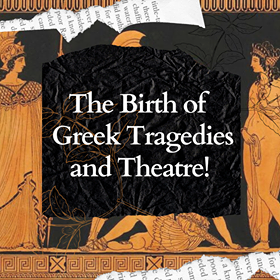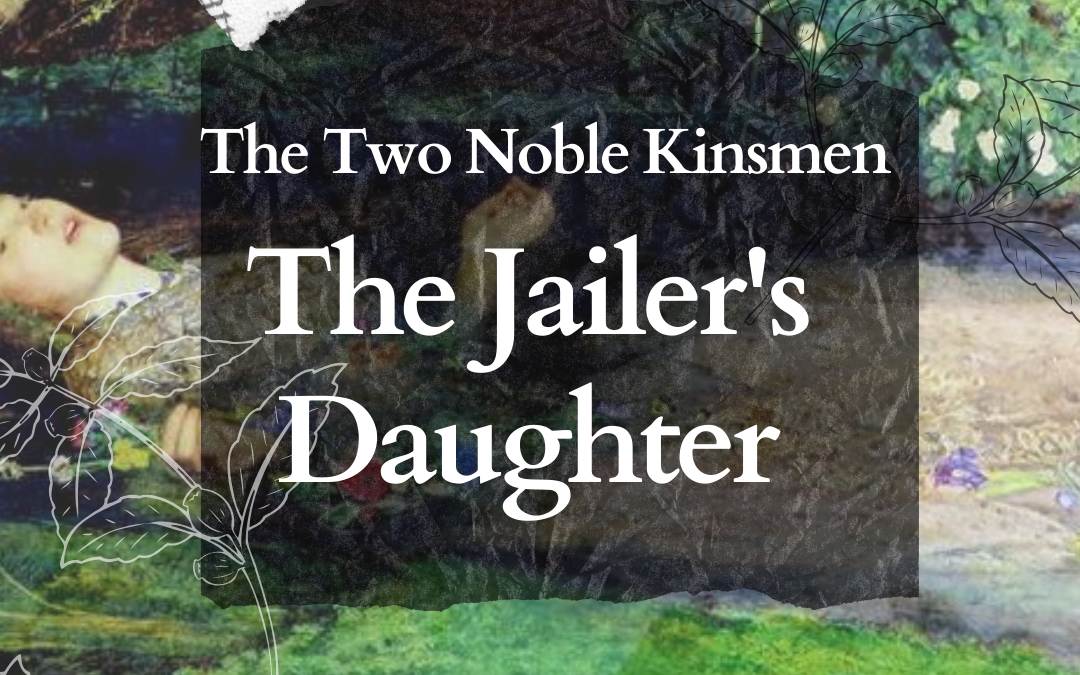
WHAT I LEARNED TODAY
May 28, 2020
COVID SELF-CARE
May 30, 2020BADDEST WOMEN IN SHAKESPEARE #2
“Baddest Woman In Shakespeare” is an on-going series focused on the many strong female characters scattered across Shakespeare’s works. It is valuable as an actress/actor to have a few Shakespeare monologues under your belt. Today’s blog was a recommendation from one of readers Dayna, and it’s the two great monologues from the Two Noble Kinsmen by William Shakespeare and John Fletcher.
The Two Noble Kinsmen
The Two Noble Kinsmen was written by William Shakespeare and John Fletcher a tragicomedy first published in 1634. An adaptation of Geoffrey Chaucer’s The Canterbury Tale’s “The Knight’s Tale” which follows two Theban Knights, and cousins Arcite and Palamon, who are imprisoned in Athens.
Jailer’s Daughter
The Jailer’s Daughter in the beginning is fairly normal and sane, filled with imagination, youth, romantic interests, and a dominating father figure. In the main plot, two curiously unmanned Theban warriors are captured in battle by Duke Theseus. Captured in a cell in Athens from their window they see the young and beautiful Emilia and are enarmed by her, leading to armed struggle for her favors.In the midst of everything going-on we meet the Jailer’s Daughter, who takes care of the prisoners in their confinement. The noble Palamon, however, turns her head, and she loses not only her heart but also her mind. She comes up with the ill-conceived idea to set Palamon free, convinced such an act will make him love her.
Act 2, Scene 4
Alone in the prison, the Jailer’s daughter contemplates her unrequited love for Palamon and how hopeless the chance of their reunion. She a daughter of Jailer, and Palamon a noble.
JAILER’S DAUGHTER
“Why should I love this gentleman? ’Tis odds
He never will affect me. I am base,
My father the mean keeper of his prison,
And he a prince. To marry him is hopeless;
To be his whore is witless. Out upon’t!
What pushes are we wenches driven to
When fifteen once has found us! First, I saw him:
I, seeing, thought he was a goodly man;
He has as much to please a woman in him
(If he please to bestow it so) as ever
These eyes yet look’d on. Next, I pitied him;
And so would any young wench o’ my conscience
That ever dream’d, or vow’d her maidenhead
To a young handsome man. Then, I lov’d him,
Extremely lov’d him, infinitely lov’d him;
And yet he had a cousin, fair as he too;
But in my heart was Palamon, and there,
Lord, what a coil he keeps! To hear him
Sing in an evening, what a heaven it is!
And yet his songs are sad ones. Fairer spoken
Was never gentleman. When I come in
To bring him water in a morning, first
He bows his noble body, then salutes me thus:
“Fair gentle maid, good morrow. May thy goodness
Get thee a happy husband!” Once he kiss’d me—
I lov’d my lips the better ten days after.
Would he would do so ev’ry day! He grieves much,
And me as much to see his misery.
What should I do to make him know I love him,
For I would fain enjoy him? Say I ventur’d
To set him free? What says the law then?
Thus much for law or kindred! I will do it,
And this night, or tomorrow, he shall love me.”
Exit.
As she cycles through the idea, the possibility of her being returned comes undone, she becomes incapable of restoring her equanimity, descending instead into chaotic behavior. The Jailer’s Daughter (unnamed in the play) reminds me a lot of Ophelia when she herself fell into “madness” which was mostly likely depression when many things around her went disarray. Though the Jailer’s Daughter is not the typical strong female character many admire, she is one filled with compassion, and hope for love and that in itself driven by the desire to be seen and accepted.
If you enjoyed this article feel free to like it ,and if there is a character you want us to discuss next contact us.




